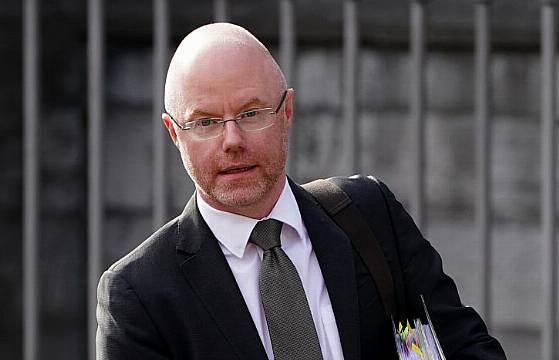The Government has approved proposals that would allow Irish families to have international surrogacy arrangements recognised.
Minister for Health Stephen Donnelly told reporters outside Government Buildings that the “important” proposals would rectify arrangements for families who do not have access to full parental rights.
“The decision made at Cabinet this morning means we’re fixing that, and we’re fixing it permanently,” he said.
Mr Donnelly – along with Justice Minister Heather Humphreys and Minister for Children Roderic O’Gorman – received Government approval for the proposals on Tuesday.
Momentous day today with the agreement by cabinet to legislate for international surrogacy, an ethical framework for future surrogacies and a provision for recognition and parental orders for children born via surrogacy … the best Christmas present legal motherhood #surrogacy pic.twitter.com/qcEzf92Vxz
Advertisement— Senator Mary Seery Kearney 🇮🇪🇺🇦 (@SeeryKearney) December 13, 2022
Minister O’Gorman said: “We’ve got a really strong piece of draft legislation coming forward, it’s the product of huge work across our three departments.”
Fine Gael senator Mary Seery Kearney said the change means that “families like mine… now have a way to have legal recognition for our position”.
“There are families today that have broken down and children are weaponised in that situation, because their second parents have had no standing in law. That ends today.
“I’m very grateful to the families – who all are in tears and in bits, we all cried a lot today – but who have poured open their lives to the vulnerability that they live under.
“Mine is seven, and I hope with a bit of luck, I probably won’t make her eighth birthday, but certainly by her ninth birthday, that the law in Ireland would recognise me as her mother and that’s incredible.”
A committee report published in the summer recommended that where an international surrogacy arrangement meets certain criteria, the intended parents should be able to apply to the courts for a parental order.
These parental orders should declare the intended parents to be the parents of the child, the report said, “equal in rights to the child regardless of biological connections”.
It made 32 recommendations, of which 30 have been fully accepted by the Government.
Following the report, which Mr Donnelly called “thoughtful” and “very well balanced”, an inter-departmental group was set up to develop legislative amendments.
“Up until now, for so many parents and for their children, Ireland has been – whilst a very welcoming country – a country where they’ve had to live with uncertainty,” Mr Donnelly said, speaking about the draft laws following Cabinet approval.
“They’ve had to live with a lot of worry, they’ve had to live with a lot of concern.
“These children are Irish, and these parents are these children’s parents, and they are now going to have that fully recognised in law.”
Mr Donnelly said that it was “complex, constitutional legislation” that they would bring forward.
“Remember, we need protections first and foremost for the child, we need protections for the surrogate, we need protections for the intending parents.
“All of those have been very carefully considered. And yes, I am confident that what has been agreed today speaks to the appropriate level of protections for all involved.”
When asked how the proposals got over the line, Mr O’Gorman said it was the “personal attention” from three ministers, the Attorney General’s help, and direction from the Taoiseach and Tanaiste that the matter “needed the full person resources of the departments and we all assigned really good teams to it”.
Once legislation is drafted, it will need to be further approved by the Government and added to the Health (Assisted Human Reproduction) Bill 2022 at committee stage in the new year.
People looking to avail of international surrogacy will need to meet the legal criteria both in the jurisdiction in which the surrogacy is to take place as well as meet criteria in the forthcoming legislation.
Among the criteria that will need to be met to have past international surrogacies recognised is that the surrogacy was not unlawful when and where it took place, that it was a purely gestational surrogacy, and the surrogate mother has provided her consent to the parental order.
Mr Donnelly said the new agency in relation to surrogacy will have the responsibility for listing countries and “legitimate” agencies where surrogacy would be available.
“If it’s an approved country, it’s the entire country, but in countries that are not approved, there can be agencies within those that can be approved.”
Earlier on Tuesday, a High Court judge is reported to have once again criticised recent Irish governments for being slow to legislate for international surrogacy, which Mr Donnelly said was “unusual”.
“I think it was an unusual comment to be made on a day when Government has just brought through a memo, quite an historic memo, that deals with all of these issues. I can tell you that this Government has taken this very, very seriously.
“I very much look forward to early in the new year, going back into committee stage on the assisted human reproduction Bill with amendments to that Bill and also I think there’s really, really important new amendments that will be brought in for surrogacy.”







